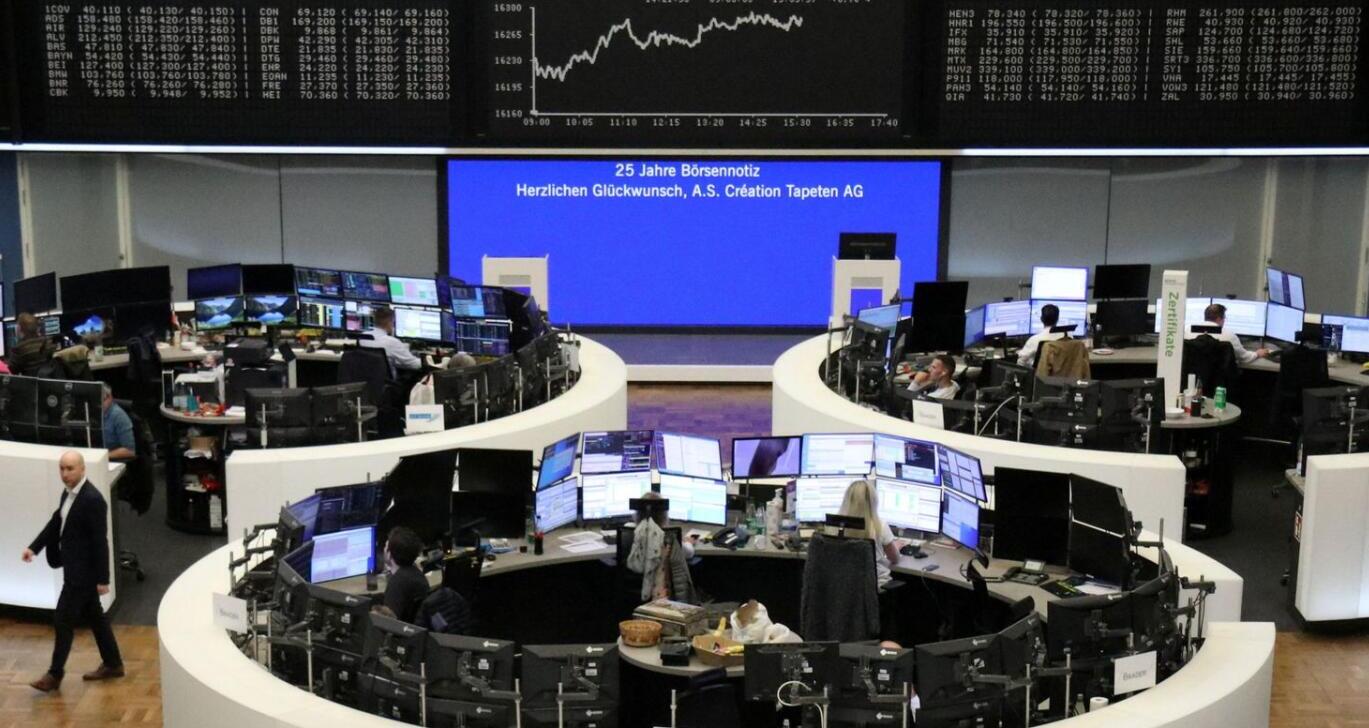European stocks gain momentum as Germany’s DAX index achieves a historic high, leading to an overall increase in share prices across the continent.
European stocks experienced a notable surge on Friday, with Germany’s DAX index reaching an all-time high, propelled by optimism surrounding the US debt ceiling negotiations. However, moments after the markets closed, it became apparent that the negotiations had hit a standstill, dampening the positive sentiment.
Germany’s DAX index, consisting of the country’s top 40 companies, concluded the day with a 0.7 percent increase, having reached an intraday high of 16,331.94 earlier in the session.
The broader pan-European STOXX 600 index also witnessed a 0.7 percent rise, reaching a level not seen in over a year. Financial stocks led the gains, contributing to the overall positive market sentiment.
Initial reports suggested that discussions on Capitol Hill regarding the debt ceiling were progressing favorably, with Democratic negotiators indicating steady advancements towards a resolution that would prevent a default. However, the lead Republican negotiator later revealed that talks had paused, and the White House acknowledged that a potential agreement still remained on the table.
Quincy Krosby, the Chief Global Strategist at LPL Financial, noted, “The market seemed to be going into this weekend thinking that the talks were going to move toward…an agreement.” The uncertainty resulting from the sudden halt in negotiations may have a significant impact on market dynamics in the coming days.
Investors and market participants were hopeful that a resolution to the debt ceiling issue would be reached, as failure to do so could have severe consequences for the US economy and financial markets globally. The debt ceiling, which sets a limit on the amount of money the US government can borrow, needs to be raised to avoid a potential default on its obligations.
The positive market reaction earlier in the day was indicative of the market’s anticipation of a potential breakthrough in the negotiations. However, the subsequent announcement of a pause in talks highlighted the ongoing uncertainties and challenges surrounding the debt ceiling issue.
Market analysts and investors will closely monitor the developments and statements from policymakers in the coming days. Any signs of progress or setbacks in the negotiations could have a substantial impact on investor sentiment and market volatility.
The European stock market’s performance in the upcoming sessions will likely be influenced by the outcome of the debt ceiling discussions. Traders will be keenly observing any new developments that may provide clarity on the path forward and the potential impact on global financial markets.
As the weekend approaches, market participants will have time to reflect on the situation and assess the potential consequences of the impasse in the debt ceiling talks. The coming week is expected to be crucial in determining the trajectory of European stocks and investor sentiment, as the resolution of the debt ceiling issue will be of utmost importance to market stability and confidence.
While the impasse in the negotiations introduces a level of uncertainty, it is essential for investors to stay focused on their long-term investment goals. Market volatility and fluctuations are part of the investment journey, and prudent investors understand the importance of maintaining a diversified portfolio and staying informed about global events that can impact financial markets.
As the debt ceiling talks continue, it is crucial for investors to remain cautious, exercise patience, and make informed decisions based on their risk tolerance and investment objectives. Monitoring the evolving situation and adjusting investment strategies accordingly will be key to navigating the potential market volatility that may arise from the ongoing negotiations.
In conclusion, European stocks experienced a mixed day, starting with optimism but ending with uncertainty due to the impasse in the US debt ceiling negotiations. The coming days and weeks will likely be critical in determining the market’s direction as investors assess the progress or setbacks in the discussions. Investors should stay vigilant, keep a long-term perspective, and adapt their strategies as new information emerges.
Investors will remain vigilant and react accordingly as new information emerges regarding the progress of the negotiations. The fate of the debt ceiling talks will not only shape the direction of European stocks but will also have broader implications for the global financial landscape.





